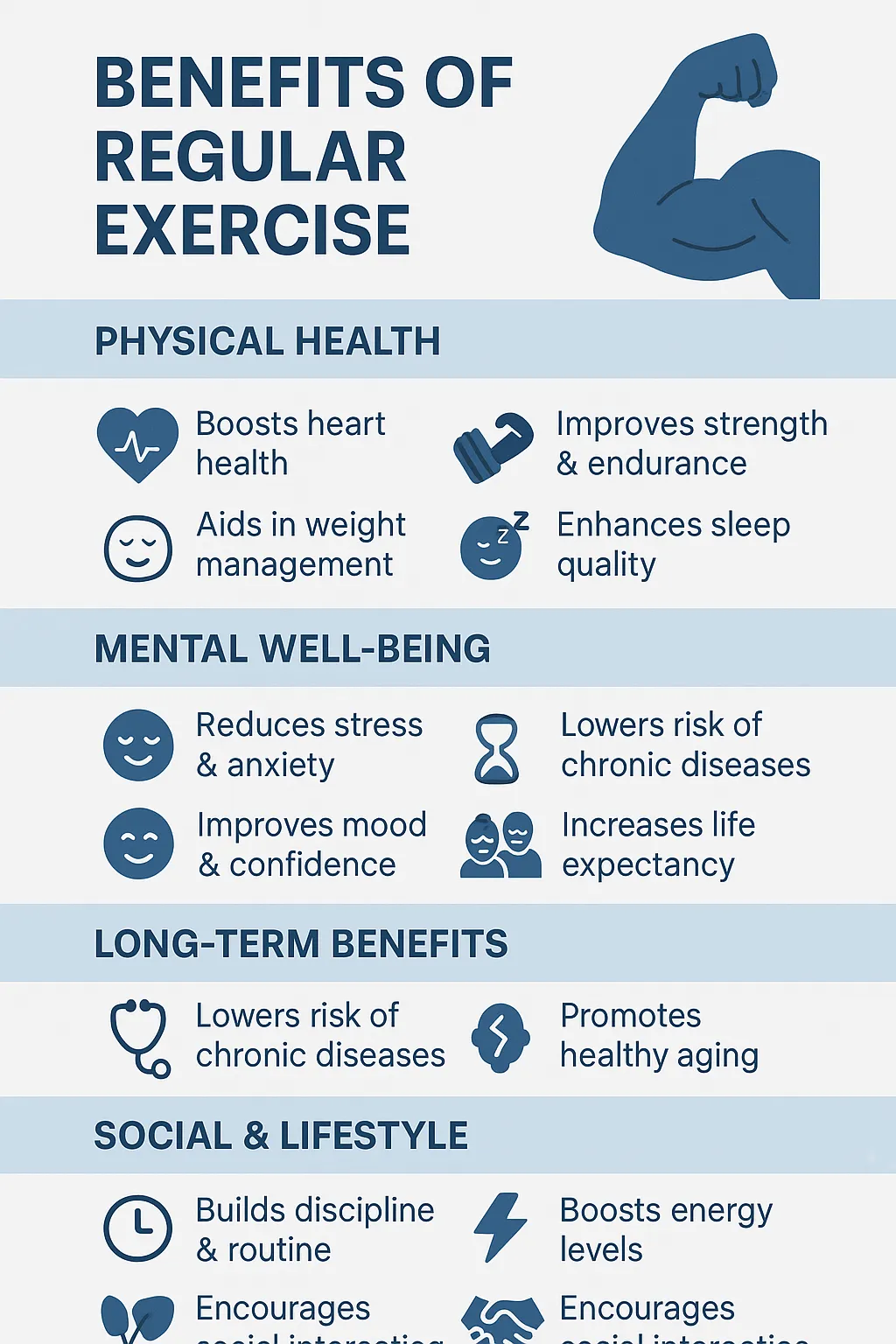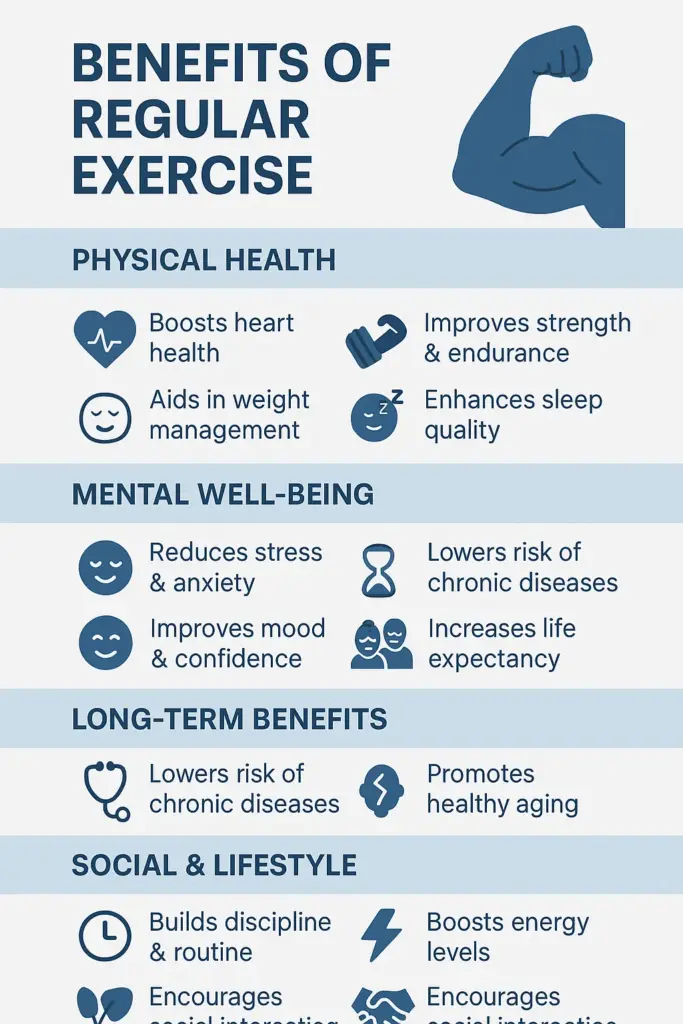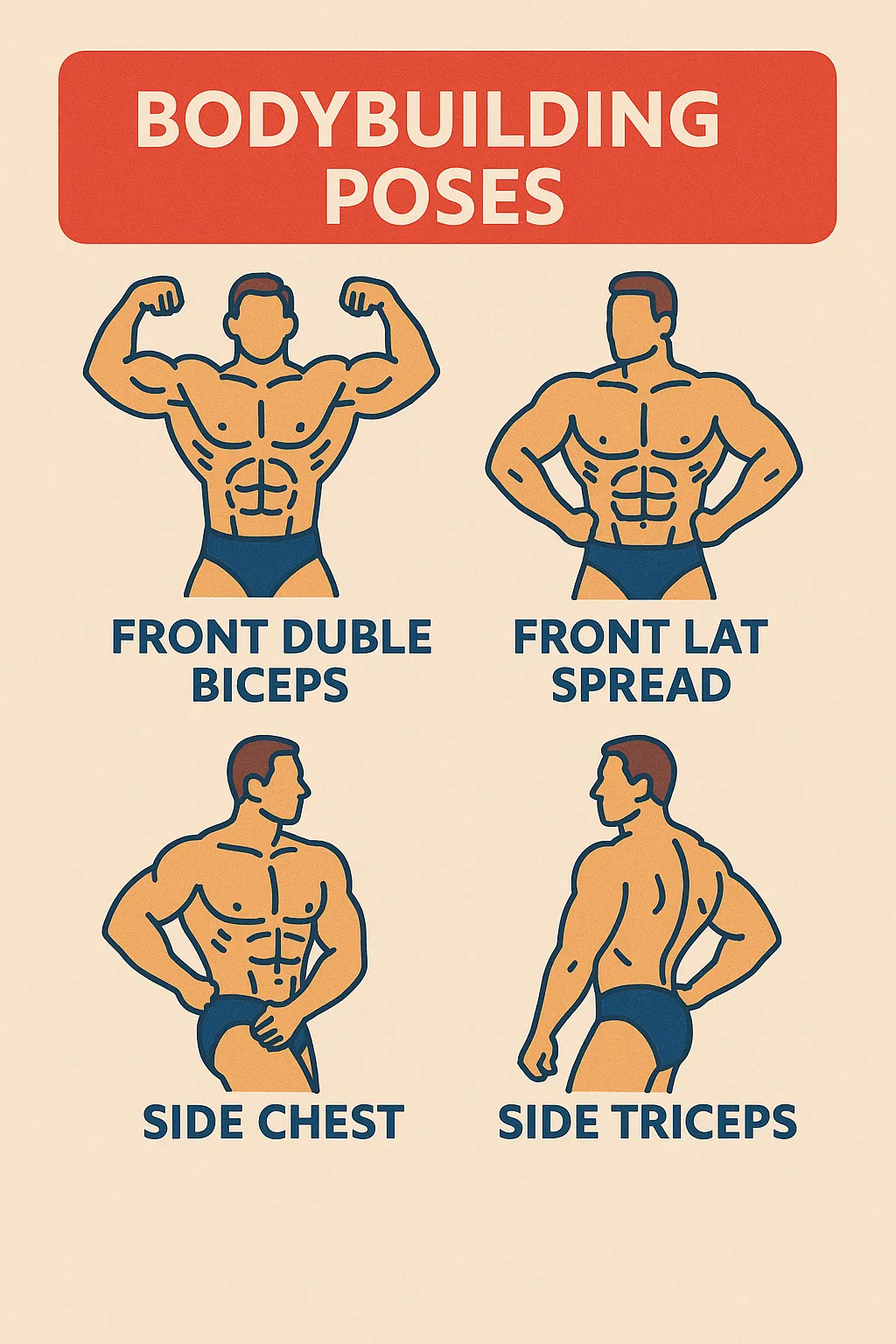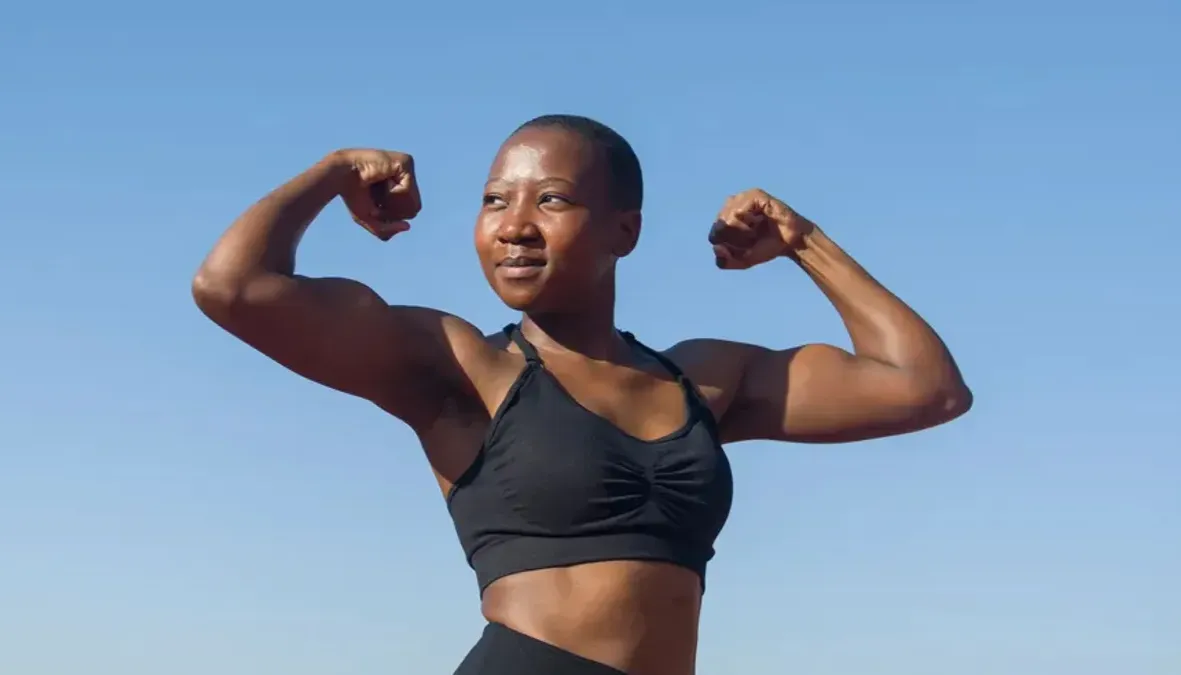In today’s hectic lifestyle, we’re all searching nonstop for ways to feel good, stay energized, and live longer. And one of the best ways of doing it? Regular exercise.

When you combine that with proper rest and sleep, it’s a recipe for a happier and better life. In this article, we’ll talk about how physical exercise, rest, and sleep work together — and why they are all important. Plus, we’ll explore the many benefits of staying active every day, in simple terms that anyone can follow.
What Is Physical Exercise?
Exercise is anything that makes your body move and burns calories. It can be walking, running, swimming, weightlifting, dancing, or even housework like cleaning or gardening. A complete workout or a quick walk–it all counts!
You don’t have to go to the gym every day to get active. Even minor changes, like taking the stairs instead of the lift, can add up in the long term.
Why Exercise, Rest, and Sleep Must Go Together
You may believe that only the amount of time you spend sweating counts. But rest and sleep are equally vital. When you exercise, you somewhat destroy your muscles.
With resting and most of all with sleep, your body repairs, regenerates your muscles to build them back stronger. Through lacking sleep and resting, your body doesn’t recuperate appropriately, and so you end up fatigued, sore, and stressed. Thus, regular physical exercise + good sleeping + sufficient rest = better output and a fitter you!
Top 10 Advantages of Constant Physical Exercise
Let’s explore how regularly you can improve your body and mind.
1. It Lifts Your Mood
Do you ever notice that after a walk or a workout, you feel better? That is not in your imagination. Exercise boosts the production of feel-good chemicals like endorphins, serotonin, and dopamine. These are the neurotransmitters that combat stress, anxiety, and even depression. Just 10 to 30 minutes of exercise can put you in a better mood for the day.
2. It Helps You Manage Weight
One of the most common reasons people exercise is to lose or maintain weight. The more you get your body moving, the more calories you’ll burn. Combined with a healthy diet, exercise can help you keep a healthy weight or even shed excess fat. With more muscle, your body burns more calories — even at rest!
3. It Strengthens Muscles and Bones
As we grow older, we lose muscle and bone strength. But an active lifestyle delays that. Weightlifting, yoga, or resistance training can preserve the strength of your muscles. Running or jumping (yes, dancing too) exercises keep your bones strong and dense, which minimises the risk of injury or osteoporosis later.
4. It Gives You a Boost of Energy
You might think that exercise exhausts you, but actually, it has the opposite impact. When you keep your body active, your heart, lungs, and muscles work better. This means they don’t have to work so hard to get things done each day. People who exercise regularly say they have more energy throughout the day.
5. It Reduces the Risk of Chronic Disease
Exercise is like a shield against most severe illnesses. Physical activity lowers your risk of:
• Type 2 diabetes
• Heart disease
• Certain types of cancer (such as breast or colon cancer)
• High blood pressure
• High cholesterol
It even strengthens your immune system, so you get sick less often.
6. It Keeps Your Skin Healthier
Exercise improves blood flow, which helps your skin get more oxygen and nutrients. Exercise can also help slow down signs of ageing and keep your skin looking fresh. Exercise can also reduce oxidative stress, which can damage your skin and lead to diseases like psoriasis or acne.
7. It Improves Brain Function and Memory
When you exercise, you’re not only doing good for your body — you’re doing good for your brain too. Exercise brings more blood to the brain and encourages new brain cells. It’s even linked with better memory, concentration, and mental clarity — especially for older adults. Regular exercise might lower your risk of Alzheimer’s and dementia.
8. It Helps You Sleep Better
Having trouble sleeping? Exercise might be the answer. Daytime exercise makes you sleep faster and sleep better and more deeply. It also gets your body clock in balance if, when training outdoors, you receive sunlight. Just don’t train before bedtime, or it can keep you awake.
9. It Reduces Pain
Surprisingly, exercise eases chronic pain. While rest used to be the prescription for relieving pain, we now understand that moving around — gently and repeatedly — can increase tolerance and quality of life for pain. It’s especially helpful for back pain, fibromyalgia, or joint pain.
10. It Improves Your Sex Life
Exercise increases blood flow, flexibility, strength, and energy — all of which contribute to a healthy sex life. Studies show that regular exercisers have higher arousal, satisfaction, and overall sexual health.
How Much Exercise Do You Need?
Health professionals recommend that you:
• 150 to 300 minutes of moderate-intensity activity per week (e.g., walking, biking, or dancing)
• Or 75 minutes of vigorous-intensity physical activity (e.g., running or HIIT exercise)
• Plus, at least 2 days a week of muscle-strengthening exercises
And don’t forget — something beats nothing! Even short bursts of activity add up!
Don’t Forget Rest and Sleep
While it’s tempting to push on workouts, don’t forget about rest days. Your muscles need time to repair and grow. Aim for:
• 7 to 9 hours of quality sleep per night
• 1-2 days of rest each week, especially if you have high-intensity training
Quality sleep also assists your metabolism, immune system, and mood, enhancing your workouts.
Final Thoughts
Exercise, rest, and sleep all do their part in giving your body and mind a boost. No matter if you’re looking to lose weight, get energised, or simply feel better, being active and rested is the key. Walk, work out at home, or stretch before bed.
In time, the little things can add up to a large change. Take care of your body, and it will take care of you.







